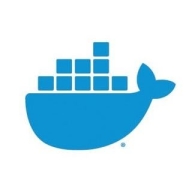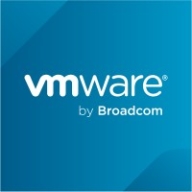

Docker and VMware Tanzu Platform compete in the realm of containerization and cloud management solutions. Docker seems to have the upper hand in terms of cost-effectiveness and ease of use, while VMware Tanzu excels with its integration within the VMware ecosystem and robust cloud capabilities.
Features: Docker offers strong security, user-friendly documentation, and simplicity in deployment, making it highly popular for containerized applications. It is known for its portability and cost-effectiveness, which are enhanced by seamless integrations. VMware Tanzu Platform stands out with its native integration with VMware products, comprehensive management for Kubernetes clusters, and multi-cloud support, providing a full-stack cloud solution.
Room for Improvement: Docker could improve its firewall setup, security vulnerability reporting, and integration with Microsoft Windows. Enhancements are also suggested for its UI and command line interface. VMware Tanzu Platform users see integration with non-VMware ecosystems and its high cost as areas to address. Additional granular networking controls and improved disaster recovery features are also desired.
Ease of Deployment and Customer Service: Docker offers a variety of deployment options and is praised for its comprehensive documentation and active community support. Support experiences vary but are generally positive. VMware Tanzu Platform supports diverse environments but is more complex due to its integration within the VMware suite. Support is responsive with positive customer engagement.
Pricing and ROI: Docker is cost-effective with its open-source model, providing significant ROI through reduced development times. Its Enterprise version offers more features but remains competitive. VMware Tanzu Platform, being pricier, targets larger enterprises, delivering ROI through its full-featured management capabilities and integration, yet its high cost can be a disadvantage for smaller businesses.
| Product | Market Share (%) |
|---|---|
| Docker | 42.2% |
| VMware Tanzu Platform | 22.1% |
| Other | 35.69999999999999% |


| Company Size | Count |
|---|---|
| Small Business | 22 |
| Midsize Enterprise | 4 |
| Large Enterprise | 34 |
| Company Size | Count |
|---|---|
| Small Business | 10 |
| Midsize Enterprise | 3 |
| Large Enterprise | 10 |
Docker is a versatile container platform used for running and deploying applications in isolated environments, ensuring consistency across development, testing, and production.
Docker offers solutions for containerizing applications, automating deployments, and managing infrastructure through its robust platform. It supports CI/CD workflows, provides a development platform for container management, and simplifies the setup by using streamlined tools. Organizations leverage Docker for building microservices, running UI applications, deploying web services, and setting up secure environments. It also facilitates managing containers via Kubernetes and creating development stacks for enhanced productivity.
What are Docker's key features?Industries implement Docker for CI/CD pipelines, scaling services, and improving resource utilization. Tech companies use Docker for building and deploying their software in isolated environments. Finance and healthcare sectors deploy applications securely, ensuring compliance with regulatory standards. Educational institutions set up consistent development environments for coding labs and training students in advanced technologies.
VMware Tanzu Platform is designed for cloud-native development and management of Kubernetes, CI/CD processes, microservices, and containerized workloads. It supports deployments both on cloud and on-premises, providing centralized management via Mission Control.
VMware Tanzu Platform offers seamless integration with vSphere, ESX, and vSAN, supporting centralized cluster management and lifecycle management. The platform provides a GUI for monitoring CI/CD pipelines and network policies, enhancing multi-tenancy and Day 2 operations. Users can easily manage Kubernetes clusters, monitor applications, and integrate with tools such as GitHub, GitLab, Cloud Foundry, and Azure. It ensures compliance and security for service providers, financial institutions, and businesses.
What are the key features of VMware Tanzu Platform?
What benefits and ROI should users look for in VMware Tanzu Platform reviews?
Industries such as financial institutions, service providers, and businesses requiring rigorous compliance and security deploy VMware Tanzu Platform. These entities benefit from centralized management, streamlined DevOps processes, and integrated tools, enhancing their capabilities in cloud-native developments and containerized workloads.
We monitor all Development Platforms reviews to prevent fraudulent reviews and keep review quality high. We do not post reviews by company employees or direct competitors. We validate each review for authenticity via cross-reference with LinkedIn, and personal follow-up with the reviewer when necessary.